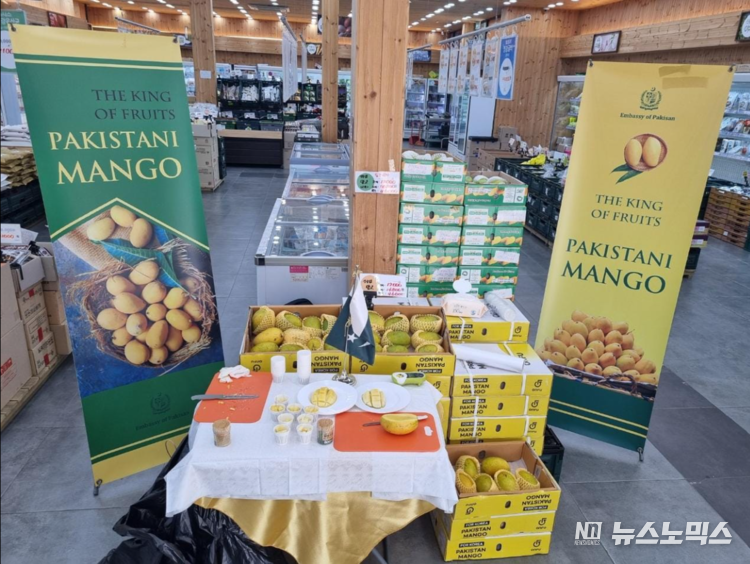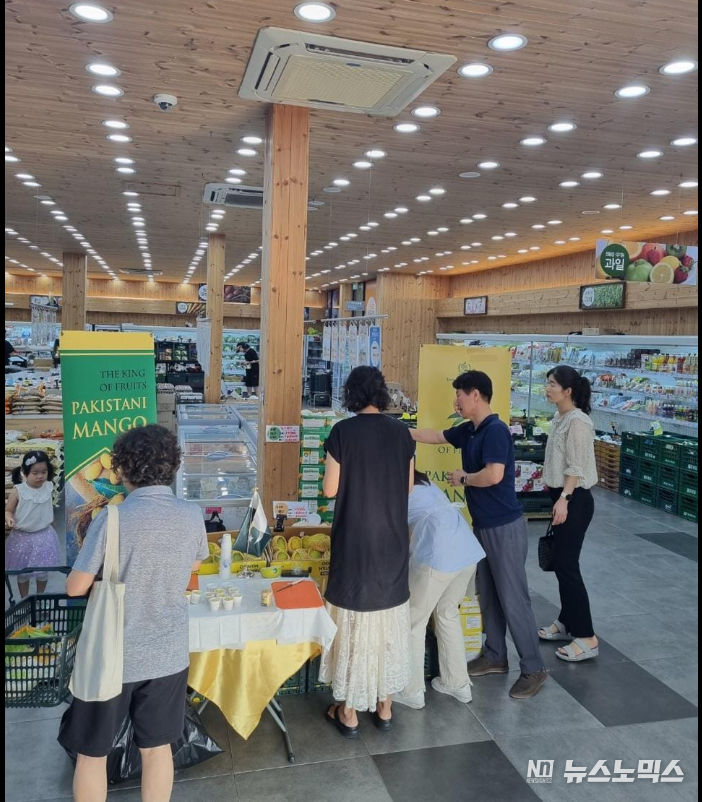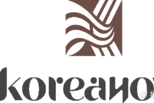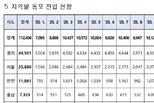
Newsnomics AJAY ANGELINA reporter |
The Embassy of Islamic Republic of Pakistan in the Republic of Korea has organized an event of tasting
Pakistani Mangoes at Oasis store in Jongno District, Seoul on Wednesday.
Since 2011, Oasis is the operator of Oasis Market, is an e-grocery store known for lower priced, private-brand organic produce. It also owns 53 offline stores and three logistics centers in the greater Seoul area.
The trade Development Authority of Pakistan (TDAP) has sponsored the event for promoting Pakistani Mangoes in Korea that are sweet in taste with great aroma.
The corner of Oasis mart decorated with Sweet Pakistani mangoes has attracted many Koreans who experienced the taste of delicious, sweet mangoes of Pakistan.

Mango popularly known as “King of fruits” owns a prominent position in horticultural productivity of Pakistan.
Pakistan produces about 1.8 million tons of mangoes annually, of which the Punjab province produces 70%,
Sindh produces 29% and Khyber Pakhtunkhwa produces 1%.
The mango productivity season in Pakistan extends for five months starting from mid-May in Sindh to late
September in Punjab.
Pakistani mangoes are internationally famous for their rich sweetness, juiciness, nutrition and unique flavor. The mangoes are consumed as fresh fruits as well as processed to develop value of products such as jams, pickles, juices, nectars, squashes, jams, jellies, pulp, concentrates etc.
The major variety of mangoes produced in Pakistan are: 1) Langra, 2) Dussehri, 3) Almas, 4) Lal Badshah, 5)
Anwar Ratol, 6) Neelum, 7) Gulab Khas, 8) Chenab Gold, 9) Chaunsa, 10) Saroli, 11) Malda, 12) Totapuri, 13)
Sindhri, 14) Fajri, 15) Sunera, 16) Azeem Chaunsa. All varieties have its own size, texture, shape, flavor, and use.
Pakistan is rated as a 5th top producing country in terms of production and the 7th top exporting country of mango.
The top export countries of Pakistani mangoes are Kazakhstan, UAE, UK, Uzbekistan and Oman and European Union.










